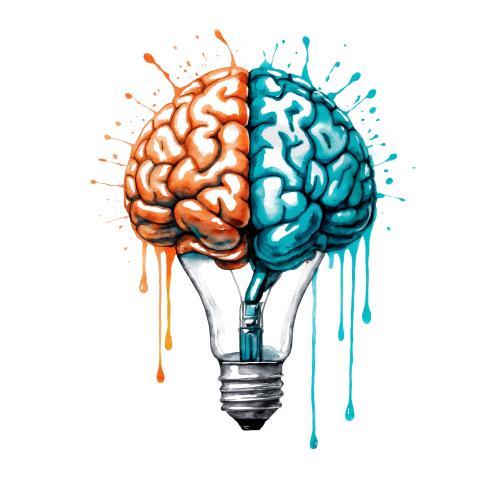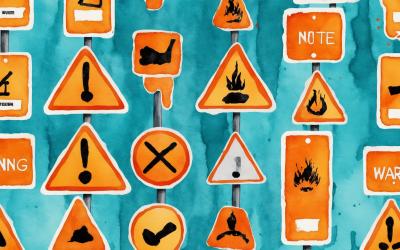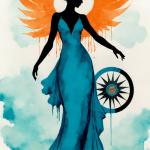What's the real difference between intuition and psychic ability in tarot reading? This article explores this intriguing question, clearing up common misconceptions about intuition and its role in tarot practice. Discover practical tips for developing your intuitive skills and learn why embracing your role as an intuitive reader, rather than claiming psychic powers, leads to more ethical and insightful tarot readings.
What exactly do we mean when we talk about intuition in tarot reading? How does it differ from psychic ability? Let's embark on a journey to demystify these concepts, challenge some common misconceptions, and discover how to harness the power of intuition in our tarot practice. Don't worry, no crystals or flowing robes required - unless that's your thing, of course.
The Intuition Illusion
Let's say you're at a crossroads, faced with a decision. Suddenly, you get a 'gut feeling' about which path to take. That, my friends, is intuition in action. But before we start envisioning ourselves as mystical beings with supernatural powers, let's pull back the curtain on what's really happening. Spoiler alert: it's less "divine intervention" and more "your brain doing its job."
Intuition isn't some magical sixth sense or a hotline to the universe. It's far more fascinating than that. It's our subconscious mind, that clever little librarian in our heads, rifling through the vast archives of our experiences and knowledge, then whispering its findings into our ear. Think of it as your personal Wikipedia, but hopefully with fewer edit wars and questionable sources.
The Psychic Pickle
Now, let's talk about psychic abilities. If intuition is your inner Sherlock Holmes, psychic ability claims to be more like having a crystal ball that actually works. It's the assertion of perceiving information hidden from the normal senses, often through extrasensory perception or supernatural sensitivity.
While intuition works with information we've already absorbed, psychic abilities supposedly tap into external sources of information - be it other people's thoughts, future events, or cosmic energies. It's like having a subscription to the universe's gossip column.
Here's where we need to tread carefully. While many people sincerely believe they possess psychic abilities, it's worth noting that at the time of writing, science hasn't been able to prove beyond reasonable doubt that psychic phenomena exist. This doesn't necessarily mean they don't exist, just that they haven't been scientifically verified yet.
Intuition vs. Psychic Ability: Separating the Wheat from the Chaff
So, how do we distinguish between intuition and psychic ability? Let's break it down:
- Source of information: Intuition draws from our internal database of experiences and knowledge. Psychic ability claims to access external, supernatural sources.
- Accessibility: We all have intuition, even if we're not always aware of it. Psychic abilities, if they exist, seem to be far less common.
- Reliability: Intuition can be honed and improved with practice. The reliability of psychic abilities is harder to measure or verify.
- Explanation: Intuition has a rational explanation rooted in psychology and neuroscience. Psychic abilities currently lack a scientifically accepted explanation.
Misconceptions: The Intuition Myths
Now that we've cleared up the difference between intuition and psychic ability, let's bust some common myths about intuition:
- "Intuition is always right." Wrong! Intuition can be influenced by biases, fears, and incomplete information. It's a tool, not an infallible oracle.
- "Intuition is a rare gift." Nope! Everyone has intuition. Some people are just more practiced at recognizing and using it.
- "Intuition is supernatural." Not at all. It's a natural cognitive process, albeit one that often operates below our conscious awareness.
- "You can't improve your intuition." Absolutely false! Like any skill, intuition can be developed and refined with practice.
Intuition in Tarot: Your Secret Weapon
So, how does all this apply to tarot? Well, intuition is your secret weapon in readings. It's what allows you to look at the Eight of Cups and suddenly understand it's not just about walking away, but about your querent's need to leave a toxic job.
Intuition in tarot is about making connections between the cards, the querent's situation, and your wealth of knowledge about human nature and the meanings of the cards. It's not about magically knowing facts you couldn't possibly know; it's about perceiving patterns and possibilities that aren't immediately obvious.
Developing Your Intuition: Flexing Your Mental Muscles
Ready to buff up those intuitive muscles? Here are some exercises to get you started:
- Practice mindfulness: The more aware you are of your thoughts and feelings, the better you'll be at recognizing intuitive insights.
- Keep a tarot journal: Record your readings and your intuitive hunches. Over time, you'll start to see patterns in how your intuition works.
- Trust yourself: Don't second-guess your intuitive insights. Write them down and reflect on them later.
- Embrace uncertainty: Intuition often speaks in whispers and nudges, not thunderbolts of clarity. Get comfortable with ambiguity.
- Feed your subconscious: The more diverse experiences and knowledge you acquire, the more material your intuition has to work with.
The Ethical Tarot Reader: Intuitive, Not Psychic
As tarot readers, it's crucial that we understand and respect the difference between intuition and psychic claims. Claiming to be psychic can create unrealistic expectations and potentially exploit vulnerable clients. For more on this, see my article on Tarot Ethics and Etiquette.
Instead, embrace your role as an intuitive reader. You're not peering into a crystal ball; you're using your knowledge, experience, and that marvelous pattern-recognition machine in your head to offer insights and possibilities. Think of yourself less as a fortune-teller and more as a narrative consultant for the story of someone's life.
Remember, the real magic of tarot lies not in supernatural powers, but in its ability to unlock our inner wisdom and spark meaningful conversations. Your intuition, grounded in knowledge and honed by practice, is the key to unlocking that magic.
So, the next time you do a reading, take a moment to appreciate that remarkable intuitive processor of yours. It may not be psychic, but it's no less wondrous. After all, who needs a crystal ball when you've got a supercomputer between your ears?
Comments are not enabled for this post yet






